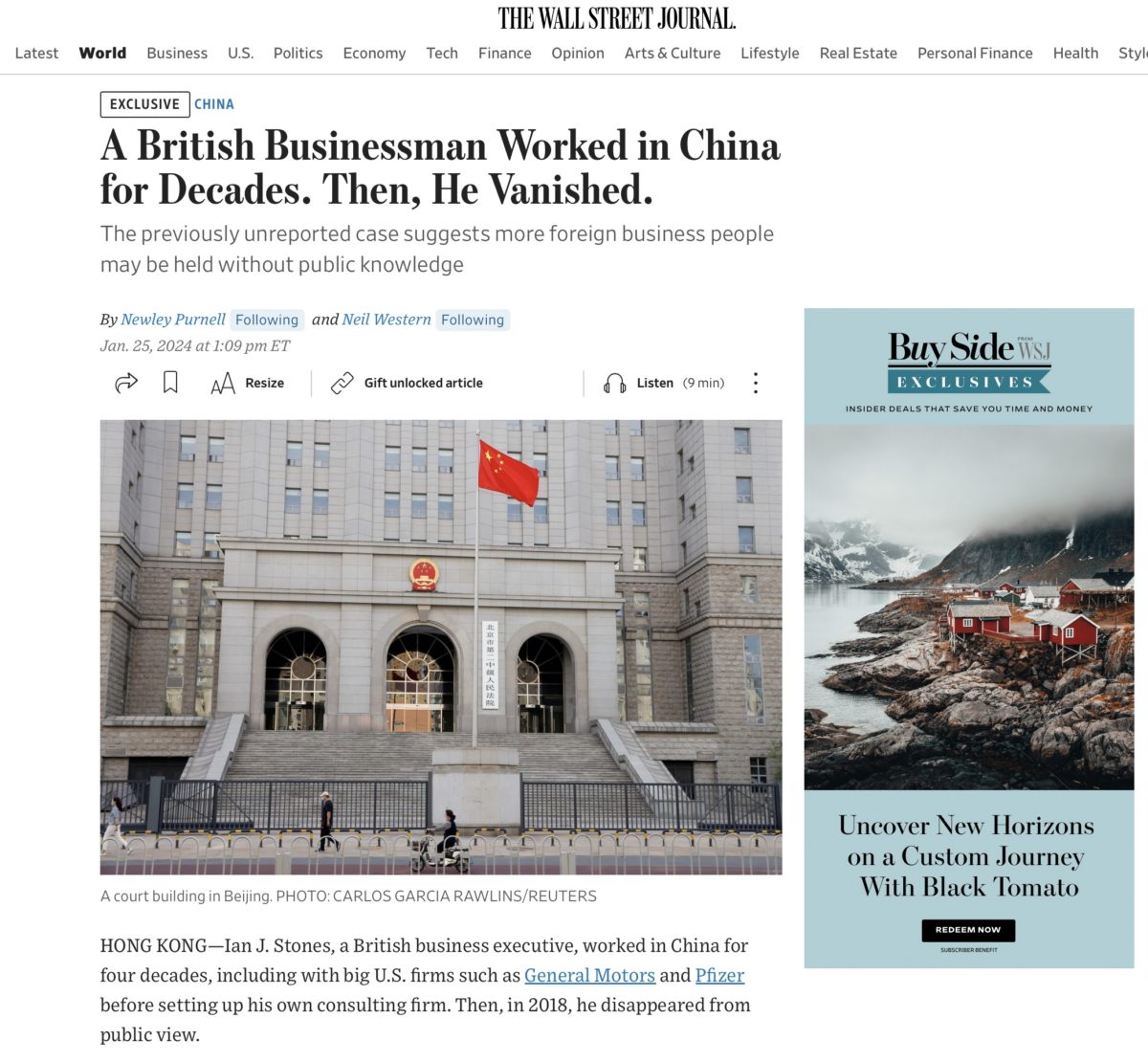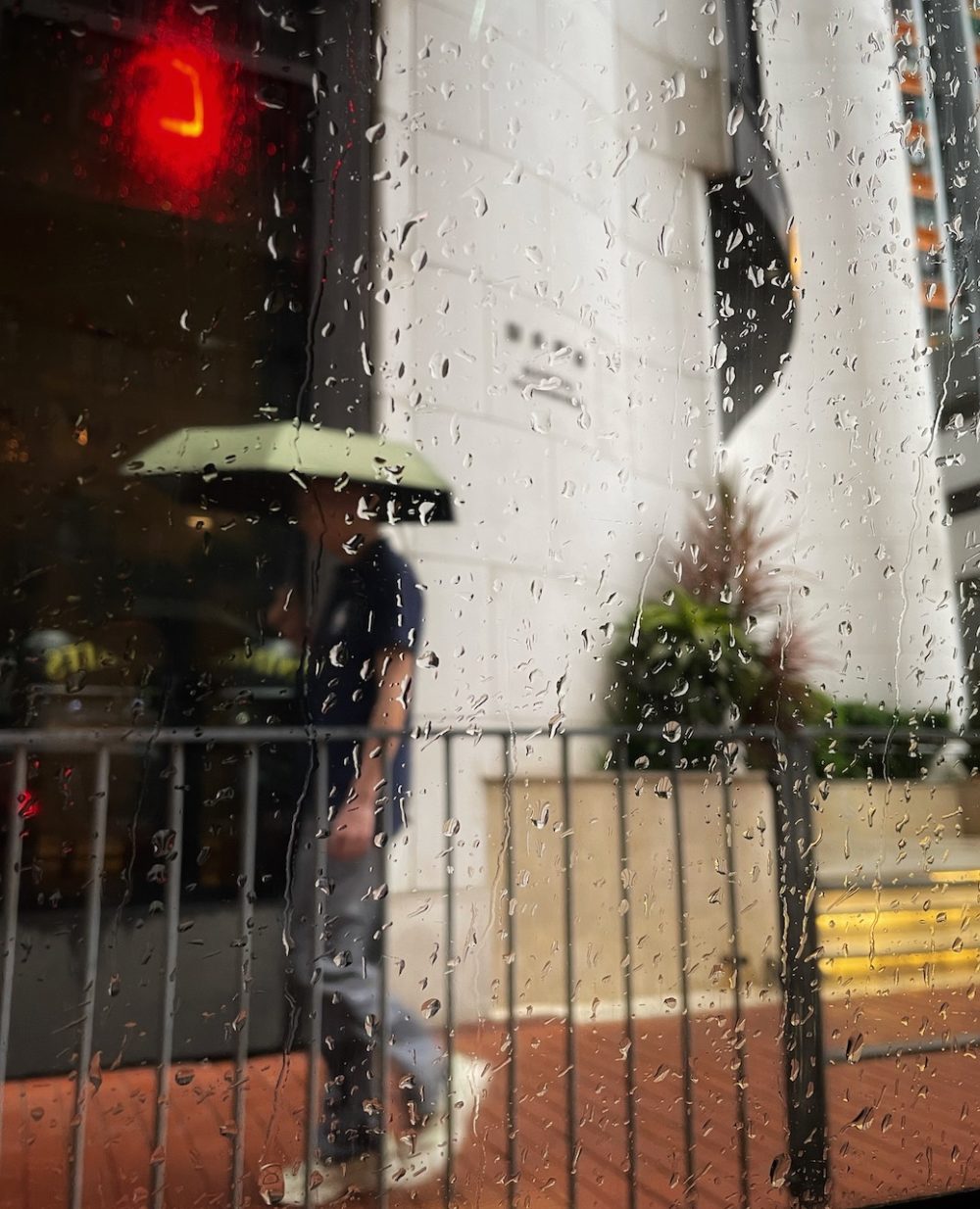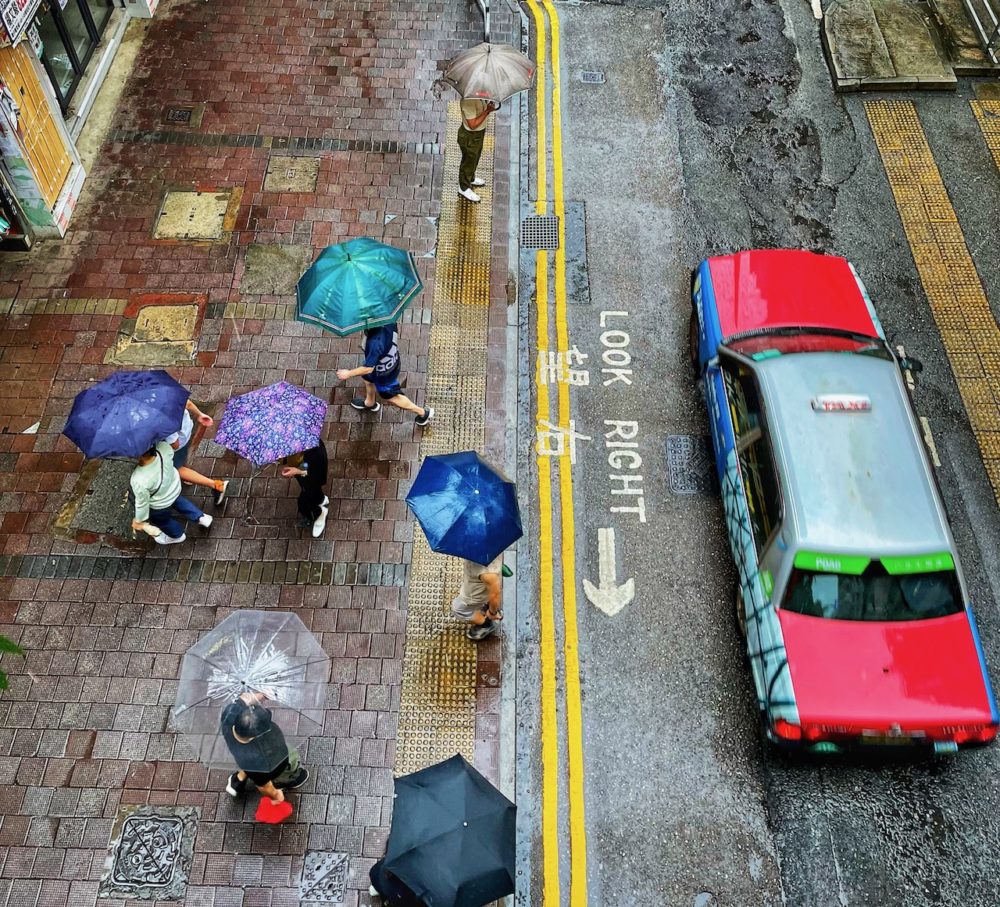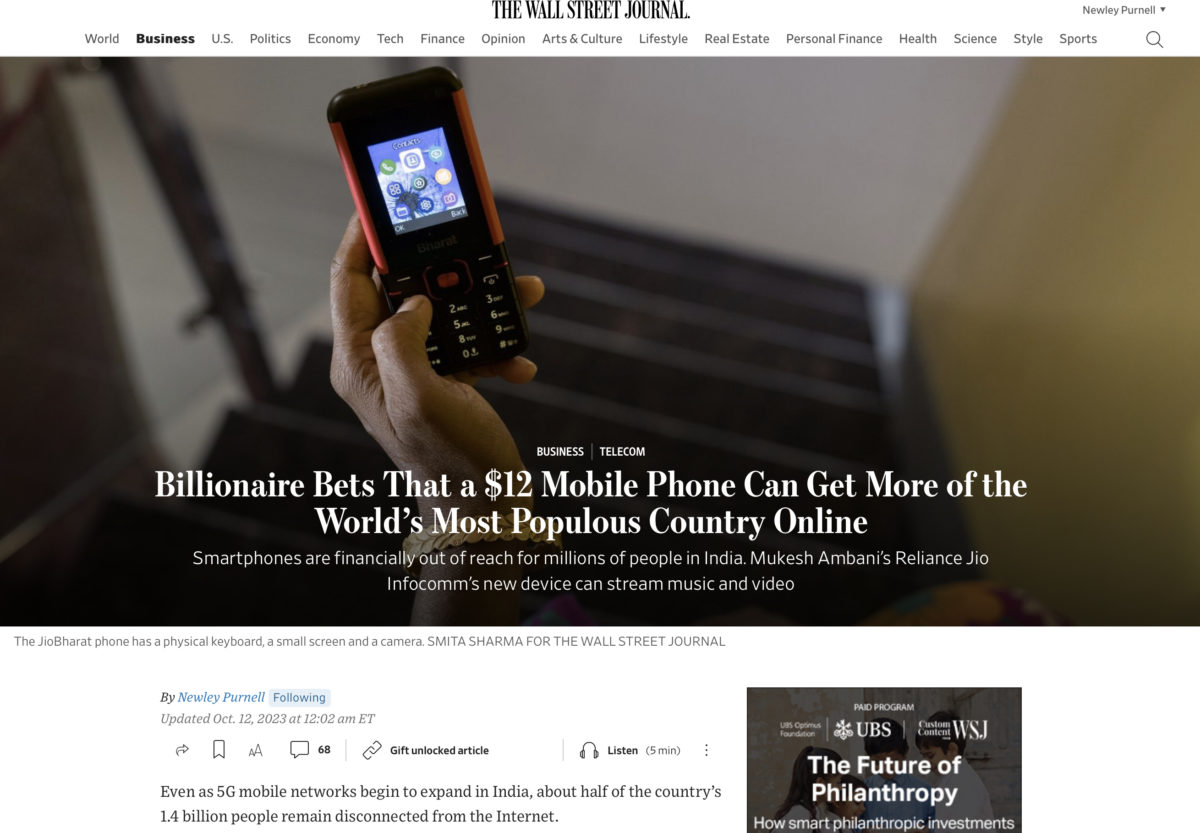Sent as a newsletter on November 30, 2023. Not on my list? Sign up here.
👋 Hi friends,
Welcome to the latest edition of Newley's Notes, a weekly newsletter containing my recent Wall Street Journal stories, must-read links on tech and life, and funny dog videos.
Image of the week, above:
💪 Keep on hustling, Hong Kong! (Thanks, Kinan T!)
My WSJ latest:
I had an exclusive out Thursday with my colleague Neil Western. The headline: A British Businessman Worked in China for Decades. Then, He Vanished.<– 🎁 Gift link
It began:
HONG KONG—Ian J. Stones, a British business executive, worked in China for four decades, including with big U.S. firms such as General Motors and Pfizer before setting up his own consulting firm. Then, in 2018, he disappeared from public view.
Stones has been detained in China since then with no public mention of the case from Chinese or U.K. authorities.
The quiet detention of a foreign businessman who is well known within China’s business community underscores the risks of operating in the country, which has an opaque legal system that is controlled by the ruling Communist Party.
China’s Ministry of Foreign Affairs said Thursday in response to questions from The Wall Street Journal that Stones had been sentenced to five years in prison for illegally selling intelligence to overseas parties. The ministry said he appealed his conviction but the appeal was rejected in September last year.
Informed of the Chinese Foreign Ministry’s response, Stones’s daughter, Laura Stones, said neither the family nor British embassy staff had been permitted to see any of the legal documents related to the case, and therefore she couldn’t comment on the details.
“There has been no confession to the alleged crime, however my father has stoically accepted and respects that under Chinese law he must serve out the remainder of his sentence,” she said.
The story was picked up by BBC News, various UK tabloids, the AP, the Financial Times, and the New York Times, among others.
My latest at Newley.com:
📸 Earlier this month I posted My 12 Favorite Photos of 2023. They feature images I captured in Bangkok, Washington, D.C., Macau and, of course, Hong Kong.
Here are 10 items worth your time this week:
1) 🍿 The Oscar nominations are out and include all of the year's best-known films, though “Barbie” director director Greta Gerwig and actress Margot Robbie missed out.
2) 🤖 Japanese author Rie Kudan says she used ChatGPT to write her recently released, award-winning sci-fi novel.
3) 🧠 Members of Gen Z around the world appear to splitting along ideological lines, with women much more liberal than men.
4) ✈️ Has a Charleston, S.C. real-estate investor located Amelia Earhart's long-lost plane deep in the Pacific Ocean? 🎁 <– WSJ gift link
5) 🇪🇨 Archaeologists have uncovered details about a huge settlement that existed in Ecuador's Amazon some 2,500 years ago.
6) 🚀 Trailer of the week: “Spaceman,” an apparently trippy, very serious sci-fi film from the director of “Chernobyl” – and starring Adam Sandler.
7) 🌋 Here are some surreal photos of lava flowing into a town in Iceland.
8) 🏀 There is now a full-length basketball court in a terminal at the Indianapolis International Airport.
9) 🐶 Was Bobbi, the Rafeiro do Alentejo dog who died in October in Portugal, really 31 years old?
10) 🐀 Two words: rat selfies.
•••
🦴 Dog-related video of the week:
•••
💡 Quote of the week:
“The truth isn't always beauty, but the hunger for it is.” –Nadine Gordimer
•••
👊 Fist bump from Hong Kong,
Newley




















